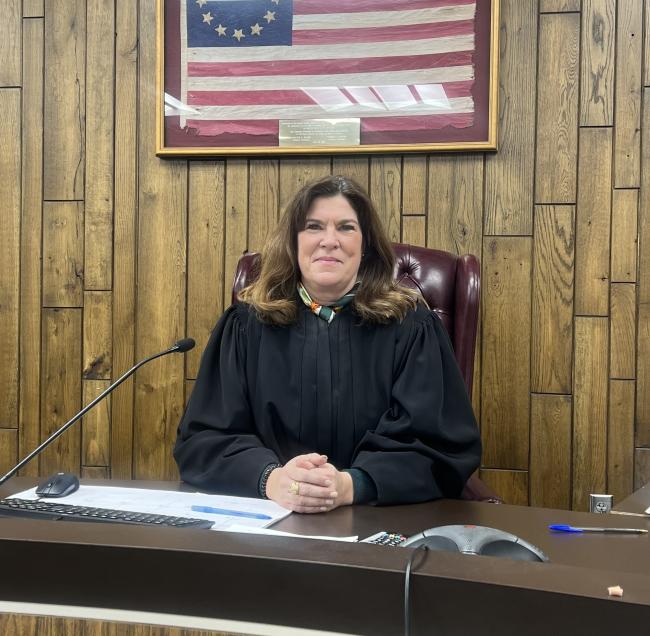
ABERDEEN, S.D. – Northern alum Julie Melius Dvorak is taking the bench in South Dakota’s 5th Circuit Court, which consists of Brown, Campbell, Day, Edmunds, Faulk Marshall, McPherson, Roberts, Spink, and Walworth counties. She was appointed by Governor Kristi Noem at the beginning of January. Prior to the appointment, Dvorak was an attorney in Aberdeen at Siegel, Barnett & Schutz.
Dvorak had been working in the legal field for 15 years before she started thinking of becoming a judge.
“I was inspired to seek this position because I want to make a difference in the lives of others. I have a history of that kind of service, whether as a social worker, as a volunteer, or in my practice. I hope to continue to have an impact on the lives of others as a circuit court judge. I look forward to a challenging and rewarding career on the bench,” Dvorak said.
Dvorak didn’t initially plan to become a lawyer. While at Northern, she switched her major at least once, she said.
“The great thing about college is that there is room and opportunity to do that,” Dvorak said.
By her senior year, Dvorak had settled on her plan to be a social worker, and augmented her degree with a criminal justice minor. The criminal justice classes taught by local attorneys piqued her interest in law. Dvorak graduated with a Bachelor of Science in sociology with a human services emphasis and multiple minors, including criminal justice. After graduation, she was considering pursuing a Master of Social Work and Juris Doctor. She was advised to work in the social work field before making that decision, Dvorak said.
“I was lucky enough to get a job with the Department of Social Services working in child protection. That experience allowed me to participate in the legal system from that perspective for nearly five years before deciding to go to law school,” Dvorak said.
Before starting law school, Dvorak recommends getting first-hand experience in the field, whether that be through job shadowing with local attorneys in corporate, city, federal and private practices, or by attending court hearings at the state or federal courthouse. Taking courses in government, US history, criminal justice, political science, communications, speech, business, and English classes focused on writing, will be helpful as well, Dvorak said.
“One of the great things about going to law school is that you can go with any kind of undergraduate degree,” Dvorak said. “A law degree opens up all kinds of avenues for careers. There are lots of lawyers who are not engaged in the traditional practice of law.”
